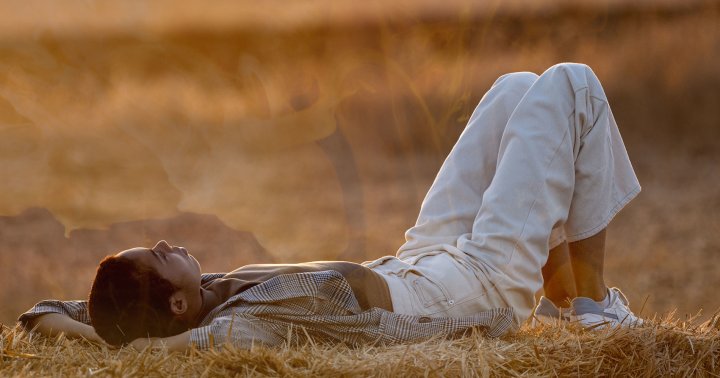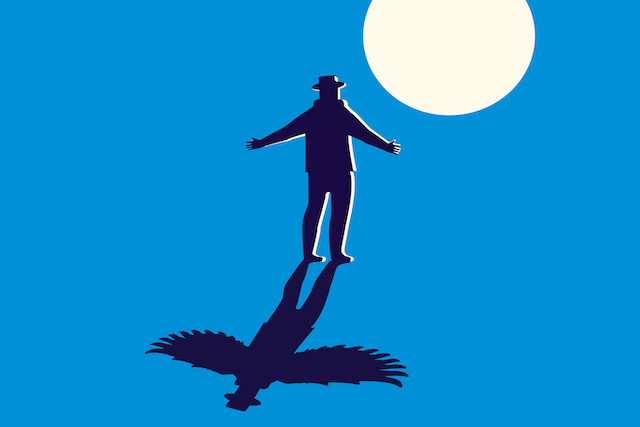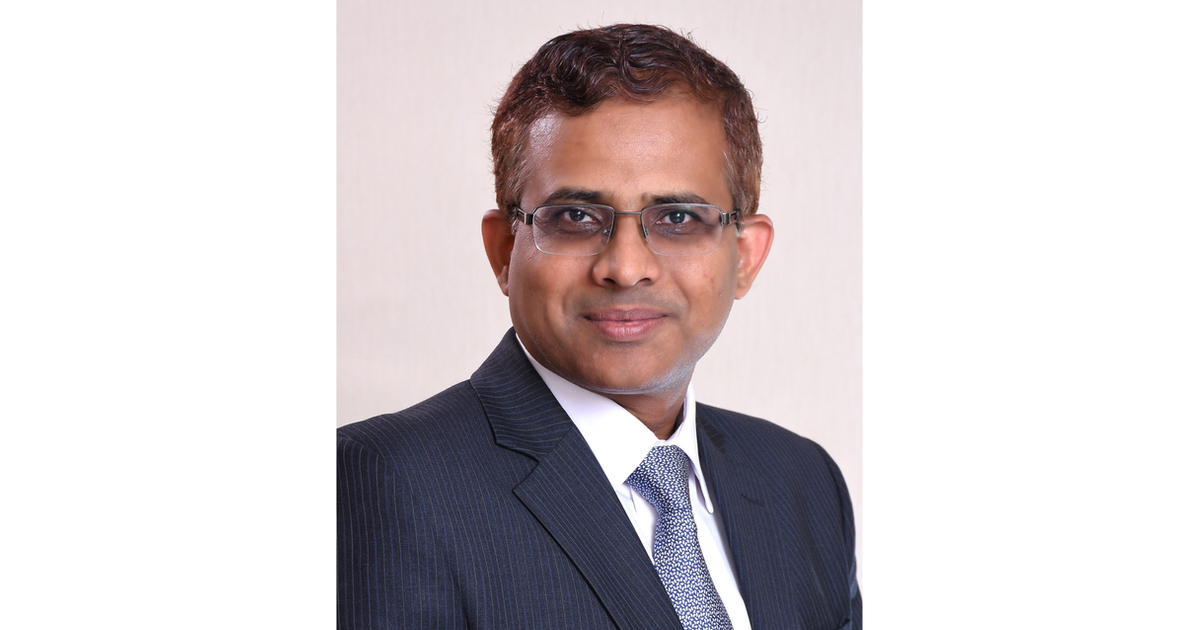How a 62-Year-Old Restored His Deteriorating Flexibility and Balance | Brian L. | Better Man Podcast Ep. 112
While nobody likes to acknowledge it, falling is one of the most dangerous things that can happen once you turn 60. Today’s guest, Brian, first realized his flexibility and balance were deteriorating after he lost his balance on a...

Episode 112: How a 62-Year-Old Restored His Deteriorating Flexibility and Balance - Brian L - Transcript
Dean Pohlman: Hey guys, it’s Dean. Welcome back to the Betterment Podcast. We are continuing with our Reclaiming Your Fitness series. And today I have Brian on from where do you live in the UK? Brian?
Brian L: I’m currently in Swanage on the south coast of the UK, but I live, in the New Forest, which is further along on the South coast for India and the UK.
Dean Pohlman: Okay, great. I was just in London, in May. Yeah. So, not too long ago. Did not get to go south, or as far south as I wanted to. That’s, I guess we’ll have to wait next trip.
Brian L: Yeah. Yeah. Yes. And I think probably about, about 100, 100 miles from London. Okay. Direct to South Coast.
Dean Pohlman: Okay. All right. So, I like to start these off, getting an understanding of, when you got started with man for yoga. So when did when did you start, man? For yoga?
Brian L: I think it was about coming up for two years ago now. I think, first of all, from YouTube.
Dean Pohlman: Okay.
Brian L: Work colleague I do is suggested that I do yoga. And she just. Yeah, she used to go to classes, open classes. And I was always very conscious about, majority of classes, women. And although, I work with women constantly on the, basically the only man they where I work, so, so I’m used to that, so it doesn’t really, but I just didn’t feel like comfortable doing going to, class full of women.
Brian L: Basically. I kept saying because I was kept saying, as I’m getting older, I’m finding my balance and my flexibility not as good. And that’s where I started. And then I just started going on to YouTube to look at, yoga, to see what classes things were available. Did a couple and they, I it was the side of yoga that I’ve never been that bothered about, the spiritual side and everything else, and really also not explaining stuff, to tell you the truth, really.
Brian L: And also there being over over flexible and you just think, well, that that’s way beyond what I can ever achieve. And then I found you, you know, the, sessions on YouTube and started doing those. And I surprised myself because I thought I’d just give it a go, and I never thought I’d get into it. And I was shocked.
Brian L: I really, really enjoyed them, got into them and started doing them regularly on YouTube. Then sort of 2 to 3 times a week and following those sessions, okay, cool.
Dean Pohlman: So you were how old were you a couple of years ago when you first got started?
Brian L: 6760.
Dean Pohlman: 60. And you mentioned that the balance and flexibility was getting more difficult as you were aging. Is that is that the main motivation behind getting started?
Brian L: Yeah, it was because I, I’ve, I’ve been running I keep I would call myself fairly fit by running and hiking regularly and doing different activities. But I it was more about my flex. I just find the flexibility was really deteriorating and what I could want to do, I couldn’t and and balance. That’s it that way. So I went out with another family, to the forest thing, and there was a log across the river, and everybody else is walking across this log log.
Brian L: And, guess what? I fell in because my oh, really was rubbish. And that was almost the thing that I. So I’ve got to be able to change this.
Dean Pohlman: All right. So that was your that was your oh shit moment falling in the water. Was your okay.
Brian L: Yeah.
Dean Pohlman: All right. Cool. Yeah. That’s that’s good motivation. So how did you notice. So you talked about the balance piece. How did you notice the flexibility. Or what? Or how did you notice a lack of flexibility or reducing your overall quality of life?
Brian L: I just threw, run just general things in life. So, so running afterwards, doing stretching exercises afterwards, not being able to touch my toes like I used to be able to, things stiffening up much quicker, and just. Yeah. And, and also noticing that I wasn’t standing very well, stooping, getting, quite bad show in the pain in between my shoulders because I realized my posture wasn’t good and stooping.
Brian L: Got it. Yeah. And generally that that was affecting different areas of life. Yeah.
Dean Pohlman: Okay. All right. So let’s go back to when you started for yoga. You’re doing it about 2 to 3 times per week. What did you notice within your first month?
Brian L: Well, I think the main thing was that how much I was enjoying it, which I really didn’t surprise. I mean, I was surprised about, and really getting in and seeing that just in a short time that I was stopped. Things that I, that I struggled with with first when you’re getting into like, there’s no way that initially I could do the pigeon, I could just do the, we the cross, the leg cross and the the the alternative to pigeon.
Brian L: I was coping with that, but there was no way. I just couldn’t get anywhere into a pigeon. And I was actually starting after a month to six weeks to be able to get into a pigeon a bit, you know, perhaps not fully, but get into it. And I was starting to improve on there. I was standing straighter.
Brian L: I’m much more aware of my posture and things like that. Yeah. And that was just within.
Dean Pohlman: That helped the shoulder pain.
Brian L: A month to six. Yes, yes, definitely. Yeah yeah, yeah.
Dean Pohlman: Okay. Cool. That’s great. So what what do you think enabled you to be consistent with the workouts?
Brian L: I think it was with using it after a run because I tend to. I was running sort of 2 to 3 times a week using it as a stretching after running. So it’s like, I do two group runs a week, no big distances. It’s evening. So, sort of 4 or 5 miles that we do as a group running in the evenings.
Dean Pohlman: And then I ran 4 to 5 miles. I would be dying for a week. So I it’s a good enough distance.
Brian L: You wouldn’t at your age.
Dean Pohlman: I well I haven’t ran in a long time. I haven’t been consistent with running in a long time. So I get there. But initially I that would be be challenging. I’m just trying to say, don’t you know, I think 4 or 5 miles is a lot of running. So, you know, that’s a lot. That’s good. Good job.
Brian L: But yeah, so I was able to fit it in regularly because I was putting it as a stretch and stretching after, after running, basically. And then I started to do it other times as well. Looking at the different things you did on YouTube, I like wakening up morning ones especially is, some days when I work, I’m, I’m very much desk based and you can not move for quite a few hours, so I was really trying to set myself up for working and being stuck in at one position by doing good stretches and and doing a morning exercise beforehand.
Brian L: And I know that and I just I was surprised how much I was enjoying it and really feeling a benefit and everything else. Yeah. And I grew from then and then I can’t I don’t know how long I did that for.
Dean Pohlman: So how long? How long were you doing the 2 or 3 times a week of stretching after running, until you started, when you started doing the morning yoga routine. Sue, was that a month in? Was that like 2 or 3 weeks in, or do you remember.
Brian L: I would think a month to two months in. Yeah, yeah, I think, I think it grew that I wanted to then progress actually. And do more. I was in. Yeah I yeah I surprised myself how much it was enjoying it and better in fact. And I do think it’s down to the way you explain things. And and go through things and you can read, you really go through which parts of the body that you’re meant to feel at that point and be, be tensing up or whatever.
Brian L: And I just, I think the other ones I do looked at, they really weren’t explained very well about how you’re meant to be feeling or what you meant to be doing. And I just yeah, I felt you progressed because you knew what you were meant to be doing when, where sort of thing.
Dean Pohlman: Yeah, yeah. Cool. I’m glad that glad that the explanations worked for you. So that’s good. So when you were first getting started and on days when you didn’t feel as energetic or as motivated on other days, what did you tell yourself or what did you do to kind of encourage yourself to do the workout?
Brian L: So I think, I think my thinking back now, one of my biggest motivations is, is that I want to feel as fit as I can for as long as I can, you know, and and enjoy life and be able to do things and be active for as long as I can. I see, because I work in health care, I see a lot of people with sort of similar age to me.
Dean Pohlman:
Brian L: Who just come do a lot of activities with daily life, and I didn’t want that to happen to me. I think that’s my main motivation, actually. Yeah. And then about other family members who’ve, who’ve died quite young. So I think that’s also that I didn’t want that. I wanted to be able to live life to the full for as long as possible.
Dean Pohlman: Yeah. So yeah, I think that’s.
Brian L: Yeah, I think that my motivation behind all exercise for myself.
Dean Pohlman: Yeah, absolutely. What do you want to keep doing? What’s important to you?
Brian L: All of it.
Dean Pohlman: All of it? Yeah, all of it. Just, exercise itself. Yeah.
Brian L: Exercise itself. Just being physically active. Mentally active, and engaging in new things and doing different things and being able to, you know, like, like some, 60th that did the skydive. I mean, it was a tandem skydive, but it’s something I always wanted to do, and I was able to do it. So, Yeah.
Dean Pohlman: Okay. Cool. So, what improvements did you notice? You know, you already mentioned the posture, but you’ve been doing mantra yoga for a really long time now. So what are some other improvements that you noticed? Maybe 3 or 6 months or even a year. And.
Brian L: So I think after doing it on YouTube for about four months, plus I thought, nah, I because I wanted to make sure basic I was going to carrying on and not to just give up after a certain time. So I thought, Now I’m into this. Now I really enjoy this. So that’s when I actually joined. And I then started seeing all the proper programs and the long programs and started from the beginners program.
Brian L: And following things through. And I think doing that beginning program really because it flows on starting at, the beginners level naturally and working your way up, you can really start to feel program and, and it’s excellent. I suppose going back to the pigeon, that’s a good example because whereas, you know, I really couldn’t do it at the beginning.
Brian L: And now when, do a set of one of the longer sessions with really live the longer holds, particularly in pigeon, I am comfortable sitting and and quite enjoy just being there in pigeon and stretching and allowing. And I always leaned over to one side or the other, and I am getting straighter and straight to being able to hold my hips.
Brian L: And, the more upright in the pigeon and things like that. And the boat pose, that’s another one that you know, initially with, legs down holding, but now quite happy. Legs, legs up, holding straight. No, you know, arms and a real progression and I think. Yeah, yeah. And you can really see a progression. Used to hate the, forward folds.
Brian L: Absolutely detest forward fold. And now. Yeah. I’m okay with them. Yeah, yeah, I still think they’re not my favorite, but but, you know, I’m. I’m okay with them now.
Dean Pohlman: Yeah. I think that’s a great sign of progress. We’ve got a lot of people who have talked about, oh, I first found this pose and I absolutely hated it. And some people love it now. But, you know, I think as long as you don’t hate it anymore, now you’re okay with them. You know, I think that’s that’s definitely progress too.
Brian L: Yeah. Yeah.
Dean Pohlman: So and so did this does this lead into you making other improvements in other areas of your health and wellness?
Brian L: Yes. Generally started to look at, my diet. And I think, and particularly regarding running because I suppose that is my main big exercise, I was actually feeling stronger in runs. And, and actually, if I went out, I’ve got some friends I sometimes go out with a weekend who tend to do longer runs. I could, I could go from just doing, you know, 4 or 5 miles up to nine miles without.
Brian L: Oh, wow. Yeah. Like, just not increasing gradually, just going from four or 5 to 9 without a problem. Well, and that’s just. And I think it’s also help with the, the muscle building exercises and programs that I’ve been doing recently. I think that’s really helped as well with my legs and everything else. Yeah.
Brian L: Yeah, yeah, it’s, just generally like that is, it’s really progress. Not, I wouldn’t say fast or it’s not improved my speed at all, but, endurance and going on further, definitely.
Dean Pohlman: Yeah. And I think that’s something that we hear pretty consistently, I don’t think I don’t think run time I don’t think run speed increases. But like you said, I think being able to go longer and I think being able to feel stronger while you’re doing it and not feel some of the aches and pains that you might have felt before just in the knees, or you’re a little low back then.
Dean Pohlman: Yeah, I just it just makes running easier if that makes I don’t know. Yeah, that’s what I’m putting words in your mouth. But that’s what I’ve heard. At least.
Brian L: No no no no, I, I would agree it’s. Yeah more sustainable and carrying on and like I’m not the most I’ll do is a half marathon. I won’t extend any more because I like being injury free. And. Yeah. And I don’t want to I want to carry on. I don’t want to then have to stop because I’ve got an injury or anything like that.
Brian L: And I mean, yeah, proper injury rather than just aches and pains.
Dean Pohlman: Yeah. So let’s, let’s talk about that a little bit. So being injury free with your exercise, is that something that you were concerned about when you were getting started with ill yoga or starting something new.
Brian L: Not about that. It would cause them no more. I just wanted to use it as a way of preventing them, because being able to be more flexible, targeting all areas and learning like, to protect the knee, you need to strengthen the leg muscles, the other parts of the leg muscles and have a good core and everything else.
Brian L: So being able to utilize the whole body to gain the best, sustainable and having a really good overall fitness helps prevent injury in, in specific areas.
Dean Pohlman: Yeah. Cool. So so you are doing so you’re running right now. You’re doing manual yoga. You’re are you. What what else are you doing. Are you resistance training or what are your what are what are your workouts that you like to do.
Brian L: So I yoga I’m running on my main to I would think when you mean resist resistance, you mean weights and things like that.
Dean Pohlman: You are using weights or using resistance bands or anything like that.
Brian L:
Dean Pohlman: There’s not a wrong answer here. Just curious.
Brian L: Resistance bands, do you do one of your programs? I forget which one it is. The resistance bands and I’ve used it in that, but I haven’t used them independently. I must admit, what I’ve started to do in some of the strength building programs have been doing recently, rather than using the yoga blocks, I’ve been using, a lighter weight.
Brian L: So. So how how do I base it? Is it five kilograms? Yeah, five kilogram weight to do some of the exercises.
Dean Pohlman: Yeah, yeah, that’s a lot of weight for those. It’s tough.
Brian L: So but yes, I’ve found that to help build strength but actually doing separate either weight lifting I know I haven’t done that. Yeah. But just do you walk. Yes. Yeah. Yeah. Yeah. That’s I suppose that’s one of them. Other main interest is, is, is walking. Yeah a lot. It’s like this weekend with feathering on the coast in Swanage and will be you know, going up and down the, the, it’s quite, hilly around here.
Brian L: Rocky, going up and down the paths, the coast paths and things.
Dean Pohlman: Got a do you know, how much do you know how much you walk, during the week, distance wise, or maybe minutes per week?
Brian L: I would like to make it an average of 10,000 a day, but it isn’t my average day. It’s about between 8 and 9. But then some days, the working days, that can be really lower. 2 or 3. I try and make. What do you.
Dean Pohlman: Do? Oh, yeah. You mentioned you work in health care. So did you have a do you have a desk job?
Brian L: Yes. So, some, some, some days a desk space and doing a lot of, since, Covid, we’ve done a, a lot of the face to face clinic appointments have been changed over to, phone call appointments. So you’re doing a lot of calls and a lot of health assessments on the phone, which really it lessens your activity.
Brian L: You know, your movement. You know, when when you do have a, clinic, you know, just getting up, going out and getting the patient and bringing them back in. You’re doing movement. You’re getting up and down. Where is it when your desk space, even though you’re actually dealing with people, you’re just just sitting there.
Dean Pohlman: Yeah.
Brian L: So on days like that. But I like to try and make up on my days off.
Dean Pohlman:
Brian L: Got it. Espec or possibly can. Yeah.
Dean Pohlman: So how has you know it sounds like you have a running group that you work out with. How has that been? In terms of your overall health and fitness journey, how has groups or social elements helped you?
Brian L: That’s that’s been really good. I, I was because I did run for a few. I’ve been running for a few years, but I’ve always run on my own and, I, I can’t, I can’t remember what made me suddenly decide to to start running in a group and joining a local group. Archives too. You. Yeah. It’s about two years ago, just over the.
Brian L: I just suddenly it was like my New Year’s resolution, I think. I just thought I’m just going to suddenly to search some groups to see if there are any running groups to run with others. I think I’d got to that six days face where in exercise that you get that you’re not seeing any, improvement. You.
Brian L: I couldn’t seem to have the motivation to extend the length of my runs, and the routes were getting a bit same ish as well when just around where you live and things like that. I think that was what got me write a group. A groups actually made mainly of women as there is less men, but it’s really good.
Brian L: And it’s it’s a group that’s not I didn’t want a group that was very competitive. Who’s got the fastest time, who does this, that and the other. And, yeah, I wanted a group that was motivating with each other, encouraging. And yes, you, we all went to different races, but there’s this all capacities there. There’s those that are just starting.
Brian L: And I don’t know if you have that in, in the US and the count to five K.
Dean Pohlman: Yeah. Yeah, that sounds familiar. We’re definitely seeing.
Brian L: This through that end of the group that are literally just starting for the first time, wanting to, to motivate themselves, get up to, the other end of the group that are doing sort of half marathons to a marathon. So, yeah. So and I’ve, it’s really encouraging with each other and the group that I go with, I mean, they just if you, if there’s one person that’s faster than the others in that group, what you do is you always go if you just carry on your own speed, you go a bit ahead.
Brian L: The group leaders always like you, like you to be in their sight. It’s all about health and safety, isn’t it? And then you look back round, go behind them and then catch them up and go in front. That way you get a longer run, but you’re also staying in the group. And, and also you, you each time there’s different people going and you chat to somebody new and, yeah, it’s just general.
Dean Pohlman: Yeah.
Brian L: Communication.
Dean Pohlman: There’s a, there’s a social, so there’s a social component to it. But also, do you feel like it helped you with when you were hitting a plateau? Do you feel like it helped you start to run okay.
Brian L: Yeah. Especially that that that looping back action that we could do. Especially when you, you go back past them, because you’ve then got that motivation to catch them up again. Yeah. I’ve found really useful, particularly if we’ve been doing any longer runs. Yeah.
Dean Pohlman: Yeah. And so and you’re also you know, you’re also part of engage our Back to Engage program. You’re a part of the man for yoga community. Has that been helpful in the same way that the in-person has been helpful?
Brian L: Yes, yes it has. More so than I thought it would be again.
Brian L: I think because I’ve, I’ve worked in very much in the female, work part for a number of years. It’s been quite good to be in the male dominated environment and have that, same chat. And it’s nice that things that I’m thinking others are as well, thinking and, and how people have been willing to share and and the actual encouragement and, and nobody’s been devised or put down or, or poo pooed about what, what the, how they’re feeling or anything else it’s been.
Brian L: Yeah, I think it’s been very good.
Dean Pohlman: Yeah. How has that helped you with, just, I don’t know, life or fitness or.
Brian L: I think, particularly the was, was it the last month was the wellness and the meditation.
Dean Pohlman: Oh, yeah. Last month we focused on stress management and mindfulness.
Brian L: Yeah. It’s helped more with the reflection to really think about. What, my thoughts and beliefs and things I struggle with, and have done through life just, just do different things and, yeah, I think that’s been it’s been really quite encouraging and, yeah. Beneficial to do that. Not in a, not in a, derisory way or, self condemning way, but just, reflective.
Brian L: And that’s realizing why you are where you are now and how you’ve got to that place. Really.
Dean Pohlman: Yeah.
Brian L: And looking what you want for the future.
Dean Pohlman:
Brian L: But also doing the I think one of the main things is enjoying the moment, being in the moment.
Dean Pohlman: Yeah. Absolutely. So what’s the next thing you want to work on in your fitness. Do you have a next big goal that you’re working on or thinking about.
Brian L: Yeah. My middle, my core.
Dean Pohlman: Is
Brian L: Where you had I’ve noticed a change, that that is one thing that, has definitely helped my my core is much stronger. And I have lost some of the, the excess weight around my middle. And I’m, I’m not big, but. Yeah, we’ve all have. Well, I have I’ve always had a thing that I carry a bit of extra weight around my middle.
Brian L: I would like to. That’s where I want to target. That’s where I want to.
Dean Pohlman: Yeah. How much weight do you want to lose?
Brian L: I’ve lost about half stone, which is what was 7 pounds.
Dean Pohlman: Seven. 7 pounds?
Brian L: Yeah, I’ve lost it. I’d like to lose another. I’d like to go down to ten stone or, you know, 140 pounds.
Dean Pohlman: Okay. Got it. Okay, cool. What’s the, do you have an idea about how you’re going to do that?
Brian L: I was going to carry on trying to build muscle of, getting a, to burn the fat is what I was going to say. Okay. It’s going to.
Dean Pohlman: Yeah. I think the definitely the building muscle piece piece should help make your body more efficient at burning fat. You’ll also just require more food to maintain more muscle mass. So, you know, just, you know, tipping the scale in that direction can just make it easier for weight loss. So, yeah probably.
Brian L: Proteins.
Dean Pohlman: Yeah. More proteins. There’s definitely the nutrition component as well.
Brian L: So yeah.
Dean Pohlman: Yeah yeah. Well that’ll be interesting to see how that goes for you. Yeah let me know.
Brian L: Yeah. Yeah. With it. Yeah. Well then.
Dean Pohlman: Yeah, yeah we do have we did just launch a, a weightlifting beta program and engage as well. So that could be, that could be of interest to you. And that’s a great way to get started. I know a lot of people are. Well, let’s talk about that. What’s what are your concerns with weightlifting or what are your what has been your aversion to it so far.
Dean Pohlman: Just a lack of desire? Or is it like the the culture behind it or.
Brian L: I think it’s a lack of desire now. Now I would when I was younger, I would have done and I think I’d have embraced it fully. But but now I’m not, I’m not worried about building muscle work. Well, am I not building muscle? But the but, you know, changing the way I look to be more muscle bound, I suppose.
Dean Pohlman:
Brian L: I just want to, I want to build muscle, but not this is not, not to show it I always think is weightlifting. I don’t know why is about then building muscle to show it, to show it. And I think also when I have done bits of it when I was younger, I find it boring, for a while.
Dean Pohlman: Yeah.
Brian L: The repetition, the things. And I also used to quite plateau out quite quickly and didn’t really see much, much improvement.
Dean Pohlman: Yeah.
Brian L: Where I was with doing yoga and, incorporating the strength building yoga sessions and adding, say, a weight in with those sessions, I have actually seen a difference, you know. Yeah. Just just in my arms, you know, me triceps has firmed up a bit. Not quite. So bingo. Me, and just just little things like that. I’m not.
Brian L: I don’t want to be ultra, ultra strong or, muscle. I just, I just want to just firm things up. Basically.
Dean Pohlman: Yeah. Yeah. Okay. That makes sense. Well, it does take a lot of, it takes a lot of effort to get to the, you know, the, the really beefed up, juiced up look. So, you know, we just had an interview with a trainer, my trainer, his name is Jesse. But we had a pretty good conversation and engage about it, but, basically the first three months and maybe up to even nine months of weightlifting are more focused on you learning the movements and understanding the kind of muscle mind connection just to do the exercises correctly.
Dean Pohlman: And, you know, but anyways, yeah, there’s definitely benefits to, to just having strength overall. And, you know, you don’t have to you don’t have to get huge. And also it’s kind of hard to get huge. It’s not just you probably won’t you probably won’t look like a bodybuilder in two months of, you know, doing doing it just like that.
Dean Pohlman: Anyways, so what’s,
Brian L: Ethics that I, you know, I don’t think I need these days.
Dean Pohlman: Yeah, yeah. No, that makes sense. Well, let’s get on to our rapid fire question. So this is where I’m going to ask you a question, and you just respond with whatever is sitting top of mind for you. Okay. So, what is one habit, a belief or a mindset that has helped you the most with your overall health and wellness?
Brian L:
Brian L: Oh, gosh. Quickfire. I’m struggling to think one thing.
Dean Pohlman: One habit, belief or mindset that has helped you with overall health and wellness that you would want other people to know about.
Brian L: I think I think it’s back to what I said at the beginning of is the fact that I want I want to stay active for as long as possible through my life. So it is it’s a habit because my ultimate goal is to to be able to do all the things I do now walking, running, going to a swim, whatever, and enjoying life to the full.
Dean Pohlman:
Brian L: That, that. Yeah, that’s a great that’s what, that’s what.
Dean Pohlman: That’s a great answer.
Brian L: Yeah.
Dean Pohlman: Okay. What is one thing that you do for your health that is often overlooked or undervalued by others?
Brian L:
Brian L: Diet. Trying to eat as healthily as possible. We, really, And, Yeah, yeah. Diet. And and not eating the junk food.
Dean Pohlman:
Brian L: Basically.
Dean Pohlman: Yeah.
Brian L: Okay. We occasionally will do, but very rare. It is a rare thing. And, and whenever I’ve had it, I don’t really ever enjoy it.
Dean Pohlman: Yeah. That’s the thing. If you don’t eat a lot of junk food, you have it. And then you feel like junk and you’re like, why am I doing this?
Brian L: Yeah, yeah. So yeah.
Dean Pohlman: Yeah, I think, all right. What’s the most stressful part of your day to day life?
Brian L: Now, these days.
Brian L: Work. Actually work. Work is. Yeah, work is when, being challenged because, again, my career is is towards the end of the career and I’m happy just, carrying on as I and being challenged. I have to come in to do new environments at work. The.
Dean Pohlman:
Brian L: Yeah. So I’d say work. Yeah.
Dean Pohlman: Okay. All right. What’s your best piece of advice for men who want to be healthier.
Brian L: Be honest with yourself. Be honest with yourself of what you you you want.
Brian L: About what you eat and what you can achieve. Achieve a realistic goal.
Dean Pohlman:
Brian L: And it’s honest I think with yourself more than anything.
Dean Pohlman: Yeah I think that’s a great answer. Cool. Is there anything else, that you’d like to say, Brian.
Brian L: No, I don’t think so. I just, yeah. I want to thank you. Really? Because of putting this out there. Yeah. I really didn’t think I would get into it like I have done enough. It’s really, Yeah, it’s been really enjoyable. You make me laugh sometimes in your sessions when this is really, fun.
Brian L: And I’m thinking, your idea of fun is not mine, but. Yeah, but but, yeah.
Dean Pohlman: That’s the, It’s the endorphins kicking in.
Brian L: Yeah, but when you do them, you actually realize. Yeah, afterwards, you really do. You can get into them and enjoy them. It’s like I never thought I would if you repeated a lot of do. Really weird. Yeah.
Dean Pohlman: Yeah. Well, Well, no, I’m grateful for you. For out of all the options that you had for online yoga that you chose, man, for yoga and that this, this is working for you. So thank you for, you know, giving it a shot and having faith in me.
Brian L: Right.
Dean Pohlman: Yeah. All right. Well guys I hope you enjoyed listening to this episode Brian I want to thank you for coming on. Hope to see you. More of you in the, in the near future. And then guys, I hope this inspires you to be a better man. And I’ll see you on the next episode.
[END]

 ValVades
ValVades 
































